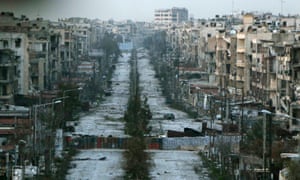http://www.telegraphindia.com/1151128/jsp/opinion/story_55429.jsp#.Vlkzs_mUdO0
Away from the glare of television cameras and his domestic critics, the Indian prime minister's visit to the United Kingdom managed to radically reshape the contours of the Indo-UK partnership. While the media were keen to highlight the controversies surrounding Narendra Modi, he managed to redefine Indo-UK relationship for the new century. The two countries sealed commercial deals worth £9 billion in retail, logistics, energy, finance, information technology, education and health. But it was the perceptual change in the bilateral relationship that would have a lasting impact on the future trajectory of a relationship which was seemingly headed nowhere before this visit.
Modi's visit came at a time when there were widespread doubts in the UK if New Delhi took the nation seriously at all in spite of the British prime minister's impressive outreach to India. Ever since he came to power in 2010, David Cameron had made a serious attempt to upgrade Indo-UK ties. In fact, in his first term, India was at the top of the list of the emerging powers that his government decided to court. He did make a serious effort, only to be snubbed by the then United Progressive Alliance government. This is one of the reasons why China has got a pride of place during Cameron's second term. The successful visit to the UK by the Chinese president, Xi Jinping, resulted in the two nations signing contracts worth £40 billion, including a project to build a nuclear power station in Britain. In one of the most significant shifts in foreign policy in decades, Britain is trying to position itself as a key partner of China in Europe. Modi, therefore, recognized that it was time for him to reciprocate Cameron's investment in India.
India and Britain had forged a 'strategic partnership' during Tony Blair's visit to India in 2005. But it remained a partnership only in name. The Conservatives are keen on giving it a new momentum. The UK is the largest European investor in India, and India is the third-largest investor in the UK. Indian students are the second-largest group in Britain. There are significant historical, linguistic and cultural ties that remain untapped. But the Labour government's legacy for India is very complex and Cameron's government needed great diplomatic finesse to manage the challenges. This was particularly true of the issue of Kashmir where the Labour government could not help but irritate New Delhi. As late as 2009, the former foreign secretary, David Miliband, was hectoring the Indian government that the resolution of the Kashmir dispute is essential to solving the problem of extremism in South Asia. Cameron's government made a serious effort to jettison the traditional British approach towards the sub-continent in so far as it has decided to deal with India as a rising power, not merely as a South Asian entity that needs to be seen through the prism of Pakistan.















